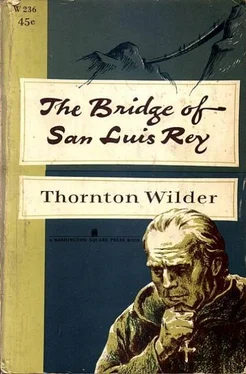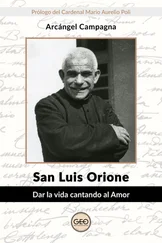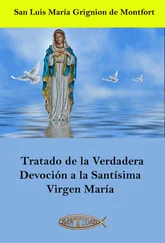“Now what is it? Mother of God, Mother of God, what is it now?”
“Nothing, little pearl. My little Camila of Camilas, nothing.”
“There was something you didn’t like. Ugly fault-finding thing that you are. Come on now, what was it? Look, I’m ready.”
“No, little fish. Adorable morning star, I suppose you did as well as you could.”
The suggestion that she was a limited artist and that certain felicities would be forever closed to her never failed to make Camila frantic. She would burst into tears: “I wish I had never known you. You poison my whole life. You just think I did badly. It pleases you to pretend that I was bad. All right then, be quiet.”
Uncle Pio went on whistling.
“The fact is I know I was weak to-night, and don’t need you to tell me so. So there. Now go away. I don’t want to see you around. It’s hard enough to play that part without coming back and finding you this way.”
Suddenly Uncle Pio would lean forward and asked with angry intensity: “Why did you take that speech to the prisoner so fast?”
More tears from the Perichole: “Oh God, let me die in peace! One day you tell me to go faster and another to go slower. Anyway I shall be crazy in a year or two and then it won’t matter.”
More whistling.
“Besides the audience applauded as never before. Do you hear me? As never before . There! Too fast or too slow is nothing to them. They wept. I was divine. That’s all I care for. Now be silent. Be silent.”
He was absolutely silent.
“You may comb my hair, but if you say another word I shall never play again. You can find some other girl, that’s all.”
Thereupon he would comb her hair soothingly for ten minutes, pretending not to notice the sobs that were shaking her exhausted body. At last she would turn quickly and catching one of his hands would kiss it frantically: “Uncle Pio, was I so bad? Was I a disgrace to you? Was it so awful that you left the theatre?”
After a long pause Uncle Pio would admit judiciously: “You were good in the scene on the ship.”
“But I’ve been better, Uncle Pio. You remember the night you came back from Cuzco—?”
“You were pretty good at the close.”
“Was I?”
“But my flower, my pearl, what was the matter in the speech to the prisoner?”
Here the Perichole would fling her face and arms upon the table amid the pomades, caught up into a tremendous fit of weeping. Only perfection would do, only perfection. And that had never come.
Then beginning in a low voice Uncle Pio would talk for an hour, analyzing the play, entering into a world of finesse in matters of voice and gesture and tempo, and often until dawn they would remain there declaiming to one another the lordly conversation of Calderón.
Whom were these two seeking to please? Not the audiences of Lima. They had long since been satisfied. We come from a world where we have known incredible standards of excellence, and we dimly remember beauties which we have not seized again; and we go back to that world. Uncle Pio and Camila Perichole were tormenting themselves in an effort to establish in Peru the standards of the theatres in some Heaven whither Calderon had preceded them. The public for which masterpieces are intended is not on this earth.
With the passing of time Camila lost some of this absorption in her art. A certain intermittent contempt for acting made her negligent. It was due to the poverty of interest in women’s roles throughout Spanish classical drama. At a time when the playwrights grouped about the courts of England and France (a little later, of Venice) were enriching the parts of women with studies in wit, charm, passion and hysteria, the dramatists of Spain kept their eyes on their heroes, on gentlemen torn between the conflicting claims of honour, or, as sinners, returning at the last moment to the cross. For a number of years Uncle Pio spent himself in discovering ways to interest the Perichole in the roles that fell to her. Upon one occasion he was able to announce to Camila that a granddaughter of Vico de Barrera had arrived in Peru. Uncle Pio had long since communicated to Camila his veneration for great poets and Camila never questioned the view that they were a little above the kings and not below the saints. So it was in great excitement that the two of them chose one of the master’s plays to perform before his granddaughter. They rehearsed the poem a hundred times, now in the great joy of invention, now in dejection. On the night of the performance Camila peering out between the folds of the curtain had Uncle Pio point out to her the little middle-aged woman worn with the cares of penury and a large family; but it seemed to Camila that she was looking at all the beauty and dignity in the world. As she waited for the lines that preceded her entrance she clung to Uncle Pio in reverent silence, her heart beating loudly. Between the acts she retired to the dusty corner of the warehouse where no one would find her and sat staring into the corners. At the close of the performance Uncle Pio brought the granddaughter of Vico de Barrera into Camila’s room. Camila stood among the clothes that hung upon the wall, weeping with happiness and shame. Finally she flung herself on her knees and kissed the older woman’s hands, and the older woman kissed hers, and while the audience went home and went to bed the visitor remained telling Camila the little stories that had remained in the family, of Vico’s work and of his habits.
Uncle Pio was at his happiest when a new actress entered the company, for the discovery of a new talent at her side never failed to bestir the Perichole. To Uncle Pio (standing at the back of the auditorium, bent double with joy and malice) it seemed that the body of the Perichole had become an alabaster lamp in which a strong light had been placed. Without any resort to tricks or to false emphasis, she set herself to efface the newcomer. If the play were a comedy she became the very abstraction of wit, and (as was more likely) it was a drama of wronged ladies and implacable hates, the stage fairly smouldered with her emotion. Her personality became so electric that if she so much as laid her hand upon that of a fellow actor a sympathetic shudder ran through the audience. But such occasions of excellence became less and less frequent. As her technique became sounder, Camila’s sincerity became less necessary. Even when she was absent-minded the audience did not notice the difference and only Uncle Pio grieved.
Camila had a very beautiful face, or rather a face beautiful save in repose. In repose one was startled to discover that the nose was long and thin, the mouth tired and a little childish, the eyes unsatisfied—a rather pinched peasant girl, dragged from the cafés-chantants and quite incapable of establishing any harmony between the claims of her art, of her appetites, of her dreams, and of her crowded daily routine. Each of these was a world in itself, and the warfare between them would soon have reduced to idiocy (or triviality) a less tenacious physique. We have seen that in spite of her discontent with her parts, the Perichole knew very well the joy that might reside in acting and warmed herself from time to time at that flame. But that of love attracted her more often, though with no greater assurance of happiness, until Jupiter himself sent her some pearls.
Don Andrés de Ribera, the Viceroy of Peru, was the remnant of a delightful man, broken by the table, the alcove, a grandeeship and ten years of exile. As a youth he had accompanied embassies to Versailles and Rome; he had fought in the wars in Austria; he had been in Jerusalem. He was a widower and childless of an enormous and wealthy woman; he had collected coins a little, wines, actresses, orders and maps. From the table he had received the gout; from the alcove a tendency to convulsions; from the grandeeship a pride so vast and puerile that he seldom heard anything that was said to him and talked to the ceiling in a perpetual monologue; from the exile, oceans of boredom, a boredom so persuasive that it was like pain,—he woke up with it and spent the day with it, and it sat by his bed all night watching his sleep. Camila was passing the years in the hard-working routine of the theatre, savoured by a few untidy love-affairs, when this Olympian personage (for he had a face and port fit to play gods and heroes on the scene) suddenly transported her to the most delicious midnight suppers at the Palace. Contrary to all the traditions of the stage and state she adored her elderly admirer; she thought she was going to be happy forever. Don Andrés taught the Perichole a great many things and to her bright eager mind that was one of the sweetest ingredients of love. He taught her a little French; to be neat and clean; the modes of address. Uncle Pio had taught her how great ladies carry themselves on great occasions; he taught her how they relax. Uncle Pio and Calderón had trained her in beautiful Spanish; Don Andrés furnished her with the smart slang of El Buen Retiro .
Читать дальше












